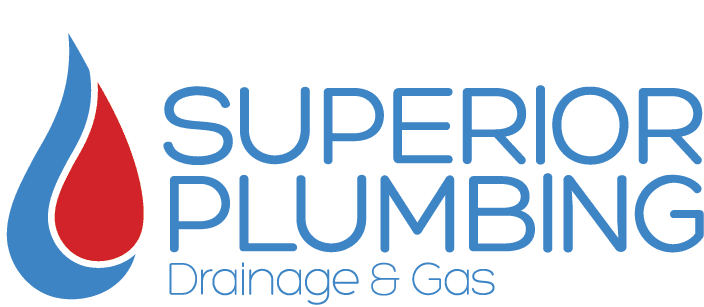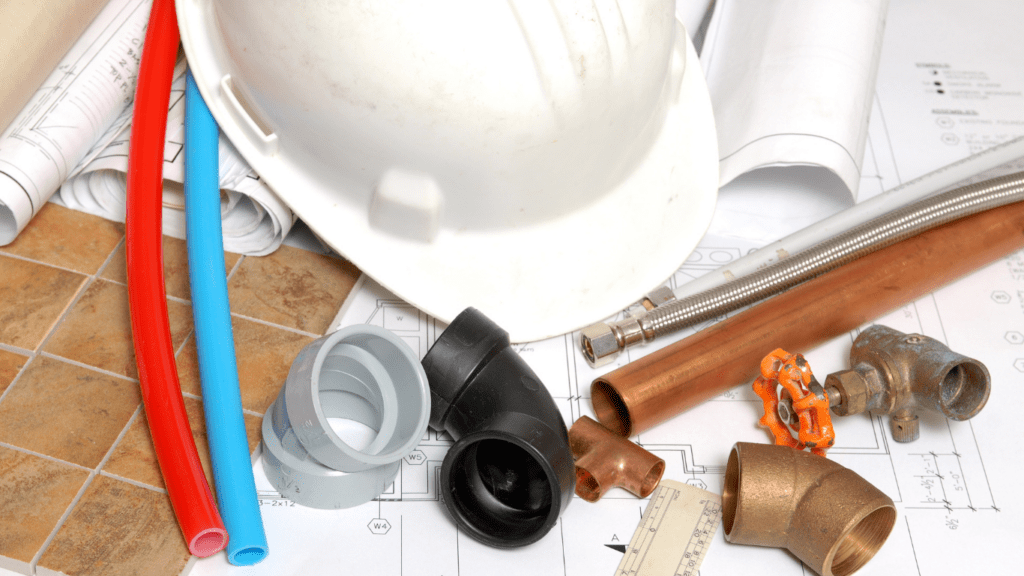Plumbing systems are essential for both homes and businesses, ensuring efficient water delivery and the safe disposal of waste. While the fundamental principles remain consistent, the distinctions between commercial and residential plumbing are significant. Understanding these differences is crucial for property owners, facility managers, and even us here at Superior Plumbing, Drainage & Gas.
What Is Residential and Commercial Plumbing?
Residential plumbing refers to the plumbing systems found in private homes, apartments, and small residential buildings. These systems are designed to provide clean water and remove wastewater for a limited number of occupants. Residential plumbing includes household fixtures such as sinks, toilets, bathtubs, and water heaters. The scope of work generally involves maintenance, repairs, and installations within individual residences.
On the other hand, commercial plumbing involves plumbing systems in larger buildings such as office complexes, shopping centres, restaurants, hospitals, and industrial facilities. These systems must accommodate more occupants and often require more complex piping, larger water heaters, and specialised fixtures. Commercial plumbing also involves compliance with stricter regulations and more frequent maintenance due to heavy usage.
Key Differences Between Commercial and Residential Plumbing
- Scale and Complexity: Residential plumbing systems are relatively straightforward, typically encompassing kitchens, bathrooms, and laundry areas. The layout is designed to meet the needs of a single household, meaning fewer fixtures, shorter pipe runs, and less intricate designs. Repairs and replacements in residential plumbing tend to be simpler and faster, often requiring only minor modifications. In contrast, commercial plumbing systems cater to large-scale buildings that may span multiple floors and require extensive networks of pipes, fixtures, and appliances. These systems must accommodate high water demand and complex drainage systems. In many cases, commercial buildings feature separate plumbing zones, each serving different areas such as kitchens, restrooms, or industrial facilities. Given this complexity, commercial plumbing often requires advanced planning, specialised components, and professional expertise to ensure efficiency and reliability.
- Usage and Durability: Commercial plumbing systems experience significantly more usage than residential ones. Office buildings, shopping malls, and restaurants see hundreds, if not thousands, of people using their facilities daily. This heavy usage increases wear and tear on pipes, fixtures, and drainage systems, necessitating robust materials and high-capacity plumbing components that can withstand constant operation.To account for this demand, commercial plumbing fixtures are typically designed for durability, featuring reinforced materials and high-efficiency systems to prevent breakdowns. Residential plumbing, on the other hand, is designed for the lower, more predictable usage patterns of a single household. While still durable, residential fixtures do not face the same level of stress as commercial-grade components. Maintenance needs are typically lower, and repairs are often simpler, but occasional heavy use or neglect can lead to plumbing issues that require professional attention.
- Regulatory Requirements: Commercial buildings are subject to stricter health and safety regulations than residential properties. These regulations vary based on the industry—for example, hospitals and food service establishments have stringent plumbing codes to ensure sanitation and prevent contamination. A client recently hired Superior Plumbing to oversee a sewer main extension for a new childcare centre. This required us to communicate consistently with the relevant authorities and obtain essential approvals from the Water Corporation. Residential plumbing must also comply with building codes, but the standards are generally less complex than commercial plumbing regulations.
- Water Heating Systems: The demand for hot water in commercial settings often surpasses that in residential homes. Commercial buildings require larger, high-capacity water heating systems to meet the needs of multiple users simultaneously. These systems may include industrial-grade boilers, tankless water heaters, or large storage water heaters that can supply hot water continuously throughout the day. In addition to capacity differences, commercial water heaters must comply with strict safety and efficiency regulations. Residential water heaters, on the other hand, are typically smaller and designed to provide hot water for a limited number of occupants. These units may include conventional storage tanks or energy-efficient tankless water heaters. While they require less maintenance compared to commercial units, residential water heaters still need periodic servicing to ensure optimal performance and longevity.
- Potential for Damage and Scheduling: The extensive nature of commercial plumbing systems means that any damage or malfunction can have widespread implications, potentially disrupting business operations and affecting many people. In residential settings, plumbing issues, while inconvenient, typically impact only the household and are generally easier to isolate and repair. Commercial plumbing work often requires scheduling flexibility to minimise disruption to business activities. Commercial plumbers may need to perform maintenance or repairs during off-peak hours, weekends, or holidays. Residential plumbing tasks are usually conducted during standard working hours, with exceptions for emergencies.
Plumbing Maintenance and Inspection
Due to their complexity and high usage, commercial plumbing systems require more frequent and comprehensive maintenance checks. No need to look for signs before you initiate inspections. Regular inspections by professional plumbers help identify potential issues before they escalate, preventing repairs and ensuring uninterrupted operation. Businesses often implement scheduled maintenance plans that include drain cleaning, pipe inspections, water heater servicing, and backflow testing. These proactive measures help prevent disruptions that could affect employees, customers, and operations.
A lack of proper plumbing maintenance can lead to several disruptions, including:
- Leaks and water damage, which can cause structural deterioration and mould growth.
- Clogged drains and sewage backups, leading to unpleasant odours and potential health hazards.
- Low water pressure, making it difficult to operate fixtures efficiently.
- Burst pipes, which can result in costly emergency repairs and water wastage.
- Malfunctioning water heaters, disrupting daily activities for both residential and commercial settings.
- Business downtime, where unresolved plumbing issues force temporary closures, affecting revenue and customer trust.
Residential plumbing systems typically require less frequent maintenance since they experience lower usage. However, routine check-ups are still essential to maintain optimal performance. Homeowners should schedule periodic inspections to check for leaks, water pressure issues, and potential pipe blockages. Simple preventive measures, such as cleaning drains and servicing water heaters, can significantly extend the lifespan of residential plumbing systems and reduce the likelihood of major repairs.
Superior Residential and Commercial Plumbing
While commercial and residential plumbing share principles, the differences in scale, complexity, usage, and regulatory requirements necessitate distinct approaches. Understanding these key differences ensures that appropriate systems are designed, installed, and maintained to meet the specific needs of each environment.
At Superior Plumbing Drainage and Gas, we specialise in both commercial and residential plumbing services. Our team is equipped with over 20 years of experience and expertise to handle the unique challenges presented by each setting, ensuring efficient and reliable plumbing solutions tailored to your specific requirements. Contact us today for professional plumbing services you can trust.


